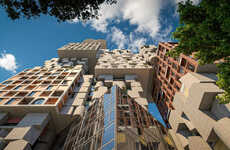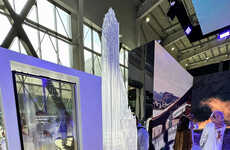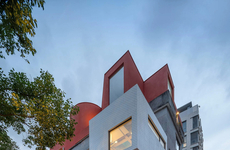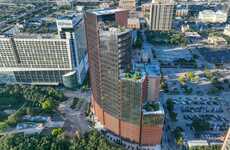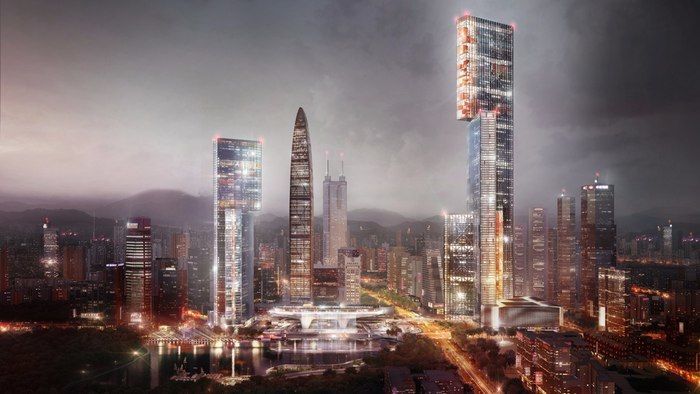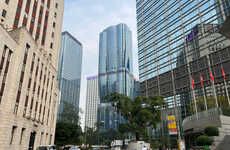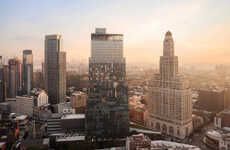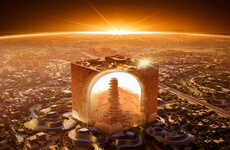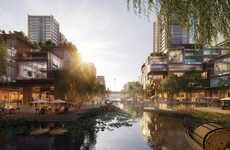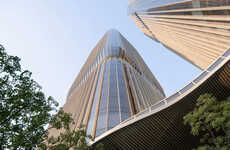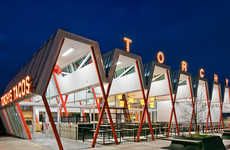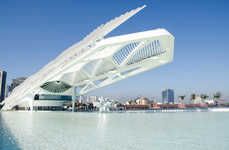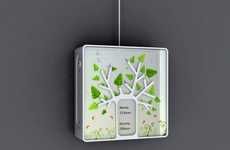
The Nexus Building Will Feature Three Offset Blocks For Greater Stability
Rahul Kalvapalle — February 17, 2016 — Art & Design
References: plparchitecture & gizmag
The Nexus Building is an innovative skyscraper that is set to be constructed in a brand new metropolitan center in the Pearl River Delta in China.
This building will feature a unique tripartite configuration that sees three offset volumes, making it completely unique from a visual standpoint. The three volumes include a park-facing 44-story block, an angled 83-story middle volume and a 124-story top section. However, this design is about far more than just striking appearance on the skyline -- this design makes the building's mooted height of 595 meters safer and more feasible, and also enables it to better deal with wind.
The Nexus building is truly an excellent example of how architectural principles and technology are continually evolving to keep up with the needs of increasingly tall skyscraper constructions.
This building will feature a unique tripartite configuration that sees three offset volumes, making it completely unique from a visual standpoint. The three volumes include a park-facing 44-story block, an angled 83-story middle volume and a 124-story top section. However, this design is about far more than just striking appearance on the skyline -- this design makes the building's mooted height of 595 meters safer and more feasible, and also enables it to better deal with wind.
The Nexus building is truly an excellent example of how architectural principles and technology are continually evolving to keep up with the needs of increasingly tall skyscraper constructions.
Trend Themes
1. Tripartite Skyscraper Design - The tripartite configuration in skyscraper design offers greater stability and safety, presenting opportunities for innovative architecture and engineering solutions.
2. Visual Impact in Skyscrapers - Incorporating unique visual elements in skyscraper designs, such as offset volumes, creates iconic landmarks and inspires future architectural creativity.
3. Wind-resistant Skyscraper Structures - Developing wind-resistant constructions and designs in skyscrapers enhances safety while allowing for greater height and architectural possibilities.
Industry Implications
1. Architecture - Architects can explore and implement tripartite configurations to revolutionize the design and stability of skyscrapers.
2. Engineering - Engineers have the opportunity to develop advanced wind-resistant structures and technologies to support the construction of taller and safer skyscrapers.
3. Construction - The construction industry can adapt and innovate to meet the demands of unique skyscraper designs that require precise execution and advanced engineering techniques.
5.7
Score
Popularity
Activity
Freshness


